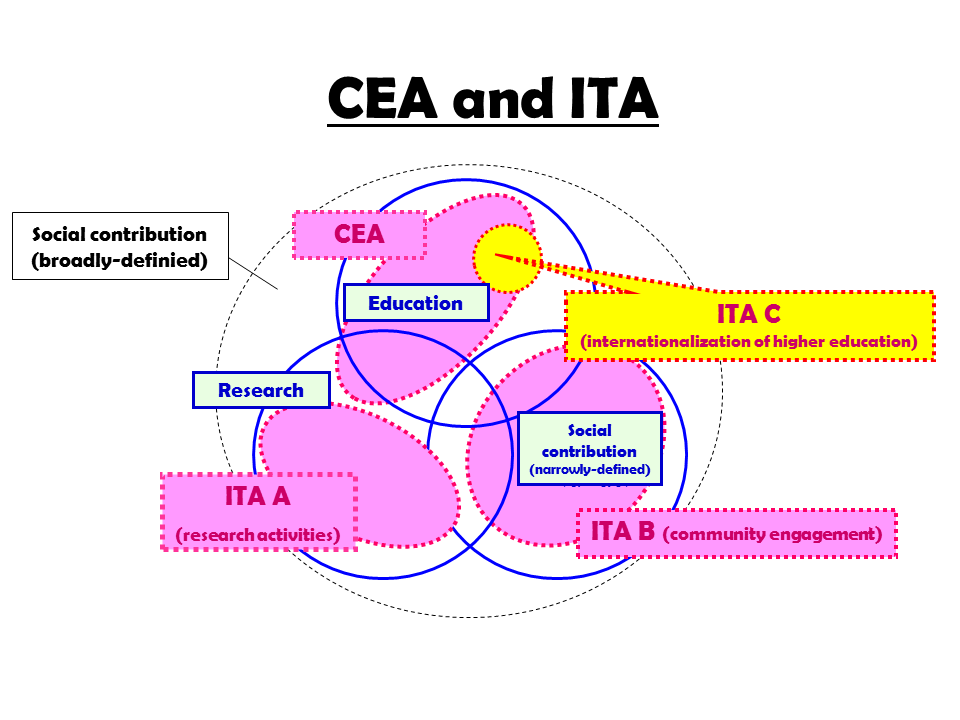Institutional Thematic Assessments (ITA)
As a certified evaluation and accreditation organization accredited by the Minister of Education, Culture, Sports, Science and Technology, NIAD-QE evaluates universities and colleges of technology that have applied for evaluation. In addition to its certified evaluation and accreditation activities, NIAD-QE conducts third-party evaluation on its own at the request of universities and colleges of technology, focusing on three institutional optional assessment themes. The following is the overview of NIAD-QE’s Institutional Thematic Assessments of universities.
Assessment Themes
There are currently three themes available for Institutional Thematic Assessments. At the time of application, universities choose one or more themes that they wish to be evaluated on.
Theme A : Research Activities
This thematic assessment evaluates research activities, which are difficult to fully grasp from the perspective of education. The status of research activities is analyzed by department, based on the records of achievement for the entire academic staff. The evaluations by department are then put together and the university is evaluated as a whole.
Theme B : Community Engagement
The following types of community engagement are evaluated:
- • Provision of educational services and learning opportunities to those other than full-time students, such as through open classes;
- • Contribution to promotion of local industry through cooperation with the industrial world; and
- • Participation in development of the local community through cooperation with national and local public bodies, and private organizations.
Theme C : Internationalization of Higher Education
This thematic assessment determines the state and distinctive features of internationalization of higher education at each university. The assessment focuses on the three elements: (1) Development of an international teaching and learning environment, (2) Admission of international students and (3) Dispatch of Japanese students abroad.
Key Documents
(English-translated version)
Process
The university conducts a self-assessment and produces a self-assessment report. The Subcommittees set up under the Committee review the self-assessment report and summarize initial findings. The summary is then reviewed by the Committee and a draft of assessment result is created. NIAD-QE notifies the university of the draft result to provide it with the opportunity to make remark(s) and/or objection(s). The Committee finalizes the result after considering the objections. The final result is published in the form of a final report, and is sent to the university and its founder, and made public.
Results of ITA
Evaluations in ITA focus on each university’s degree of attainment of goals for their activities related to the theme. Each university’s overall degree of goal attainment is assessed on a four-point scale: Excellent, Good, Satisfactory or Unsatisfactory.
For Theme C ‘Internationalization of Higher Education’, in addition to the above assessment, the level attained in each of the three elements is graded against the same four-point scale using a benchmark within the Japanese higher education.


